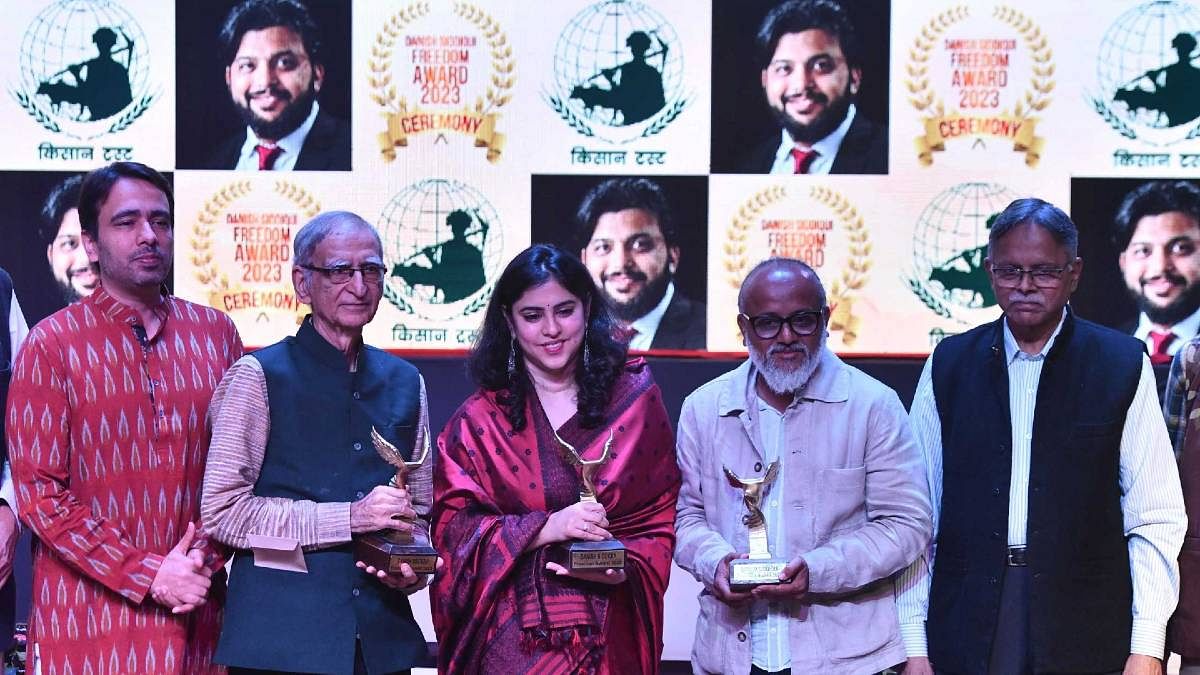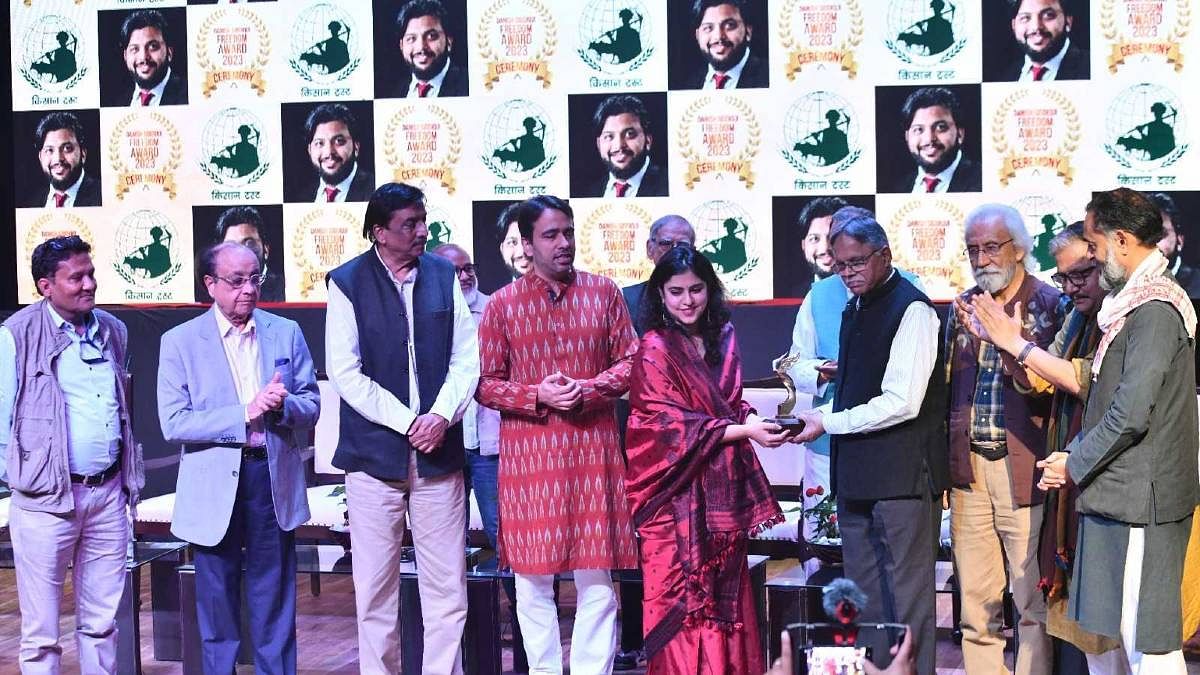New Delhi: The second edition of the Danish Siddiqui Freedom Award, organised by the Kisan Trust, had three recipients Thursday — among them ThePrint’s Ananya Bhardwaj, who received the award for her coverage of this year’s Manipur ethnic violence between the state’s Kuki and Meitei communities. The awards were presented on the occasion of National Press Day, at Delhi’s Dr. Ambedkar International Centre.
Talking about the recognition, Bhardwaj said, “This is an overwhelming moment for me as a journalist… Manipur was one of the most challenging assignments for me. But when I went there, experienced the violence firsthand, it was an altogether different experience. I got this opportunity through ThePrint and I dedicate my award to my organisation.”
Among the biggest challenges for her while covering the events in Manipur, according to Bhardwaj, were language barrier and lack of access. “Yet as a reporter, I feel lucky that I got to go there and report. That’s why I am standing here with this award.”
The other awardees for 2023 included Ram Puniyani, a former professor, writer and social activist, and Atul Loke, an internationally acclaimed photojournalist. While Puniyani was presented with the lifetime achievement award, Loke got the award for his courageous reportage from Sri Lanka, Nepal and other countries.

The awardees were felicitated in the presence of Rajya Sabha member and chairman Kisan Trust Chaudhary Jayant Singh, other Kisan Trust members including senior politician Shahid Siddiqui (not related to Danish Siddiqui), Manoj Jha, Yashveer Singh and Danish’s father Akhtar Siddiqui. The jury members for this year’s awards included social activist Yogendra Singh, senior photojournalist from ThePrint Praveen Jain, and author and historian Syed Irfan Habib.
The Danish Siddiqui Freedom Award, instituted in the memory of Pulitzer-winning journalist, Danish Siddiqui, “aims to honor individuals who exemplify an unwavering commitment to upholding constitutional values, championing civil rights, and safeguarding freedom of expression”. Siddiqui was killed in July 2021, while covering the Taliban takeover of Afghanistan for Reuters. He posthumously won his second Pulitzer, for his coverage of the Covid-19 pandemic.
While honouring the recipients of this year’s award, the organisers also touched upon the “deteriorating press freedom in India”.
Applauding “journalists with courage”, jury member Habib said, “While people talk about Bhagat Singh’s sacrifice for freedom, a lot of people don’t know about his courage and how he continued writing. Nowadays, the journalists who have the courage to write, are doing what Bhagat Singh did. They are our inspirations”.
Also read: On World Press Freedom Day, India’s ranking falls again to 150th out of 180 countries
‘Journalists are the voice of common people’
Speaking in the same vein, Kisan Trust Chaudhary Jayant Singh said, “Right to expression is what our country once used to run on. We have never come out on roads when this right is not given to people… When our pens are stopped, our thoughts stop too and there will be no progress in the society.”
According to Rashtriya Janata Dal leader Manoj Jha, the current situation in the country was such that people cheer for an entire religious community being killed. “Such is the level of hatred. People in India who don’t even know where Palestine and Israel are, want Palestinians dead just because they think all of them are Muslims,” he claimed.
Jha further alleged: “The current government divided the country based on religion. It can make them win the elections but it cannot change the destiny of this country.”
For former Rajya Sabha member Shahid Siddiqui, the point of concern was that while “many journalists speak like politicians, real journalists are not taken seriously”.
“Democracy is not possible without honesty and discourse. Journalists are the voice of the common people and they bring forward the truth,’ he said, adding that people vote for the government once but “journalists keep the government in control throughout the next five years”.
(Edited by Poulomi Banerjee)
Also read: ‘Social media, not big press, is where democracy will continue to thrive’, says ACJ chair

